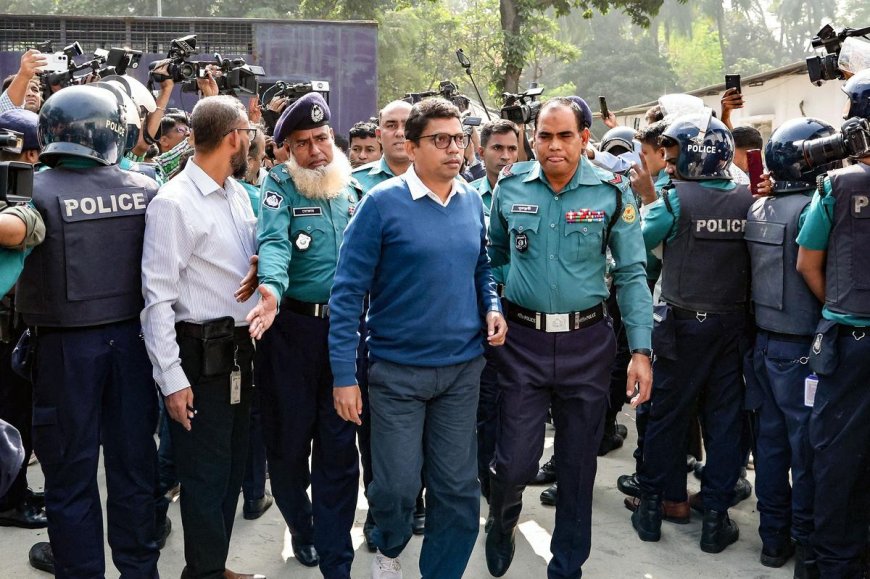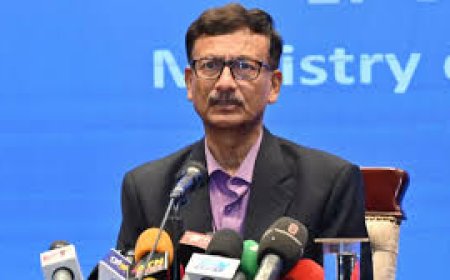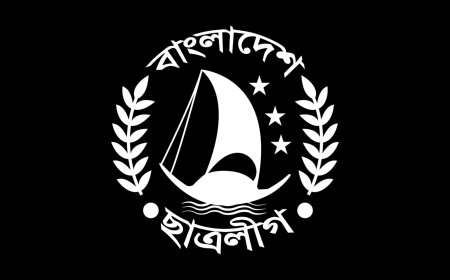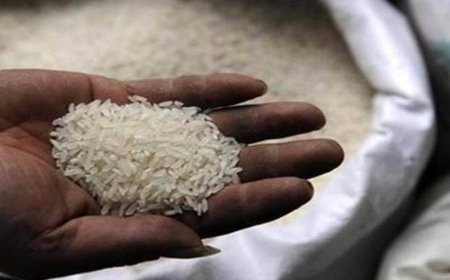Former Bangladeshi ministers face charges of 'massacre,' with a deadline set for the Hasina investigation
The International Crimes Tribunal has directed the completion of the investigation against former Prime Minister Sheikh Hasina and the submission of a report by December 17.

Over a dozen former top Bangladeshi officials, arrested following a mass uprising in August, have been charged with "enabling massacres" before a special tribunal. Investigators have been given one month to complete their probe into former Prime Minister Sheikh Hasina.
Since the collapse of Hasina’s regime, dozens of her allies have been taken into custody for their role in a police crackdown that resulted in over 1,000 deaths during the unrest that led to her removal and exile in India. Prosecutor Mohammad Tajul Islam stated on Monday that 13 individuals, including 11 former ministers, a judge, and an ex-government secretary, face charges of command responsibility for the deadly crackdown on student-led protests that overthrew the government.
“We have presented 13 defendants today, including 11 former ministers, a bureaucrat, and a judge,” said Islam, Bangladesh’s chief prosecutor at the International Crimes Tribunal. “They are accused of complicity in massacres by planning, inciting violence, ordering law enforcement officers to shoot on sight, and obstructing efforts to prevent genocide.”
Hasina, who fled to New Delhi on August 5 by helicopter, was also scheduled to appear in court in Dhaka on Monday to face charges of "massacres, killings, and crimes against humanity." However, she remains a fugitive in exile, with prosecutors reiterating their demands for her extradition. Judge Golam Mortuza Majumdar, head of the three-member tribunal, set a deadline of December 17 for investigators to complete their work, following requests from prosecutors for additional time.
During Hasina’s nearly 16-year tenure, the country witnessed widespread human rights violations, including mass detentions and extrajudicial killings of political opponents.
“The crimes that led to mass killings and genocide have taken place over the past 16 years across the country,” stated Islam. The chief prosecutor has also sought assistance from Interpol via Bangladesh’s police chief to apprehend Hasina. Although India is a member of Interpol, it is not obliged to extradite Hasina, as each country enforces its own legal procedures for such matters.
On Sunday, interim leader and Nobel laureate Muhammad Yunus announced that his government would seek Hasina’s extradition from India—a request that could strain relations with a key regional ally that maintained close ties with Hasina during her time in power. Yunus claimed that up to 3,500 people may have been abducted under Hasina’s “autocratic” rule.
Protests erupted across Bangladesh earlier this summer, triggered by college students demanding the abolition of a controversial government job quota system that they believed favored supporters of the ruling party. While the top court abolished the quota, the protests quickly expanded into a broader call for Hasina’s removal from office.
The government’s response became one of the bloodiest chapters in Bangladesh’s history, with security forces using tear gas, live ammunition, and physical force to suppress peaceful protesters, resulting in over 1,000 deaths in just three weeks and thousands of arrests.
What's Your Reaction?





















































































